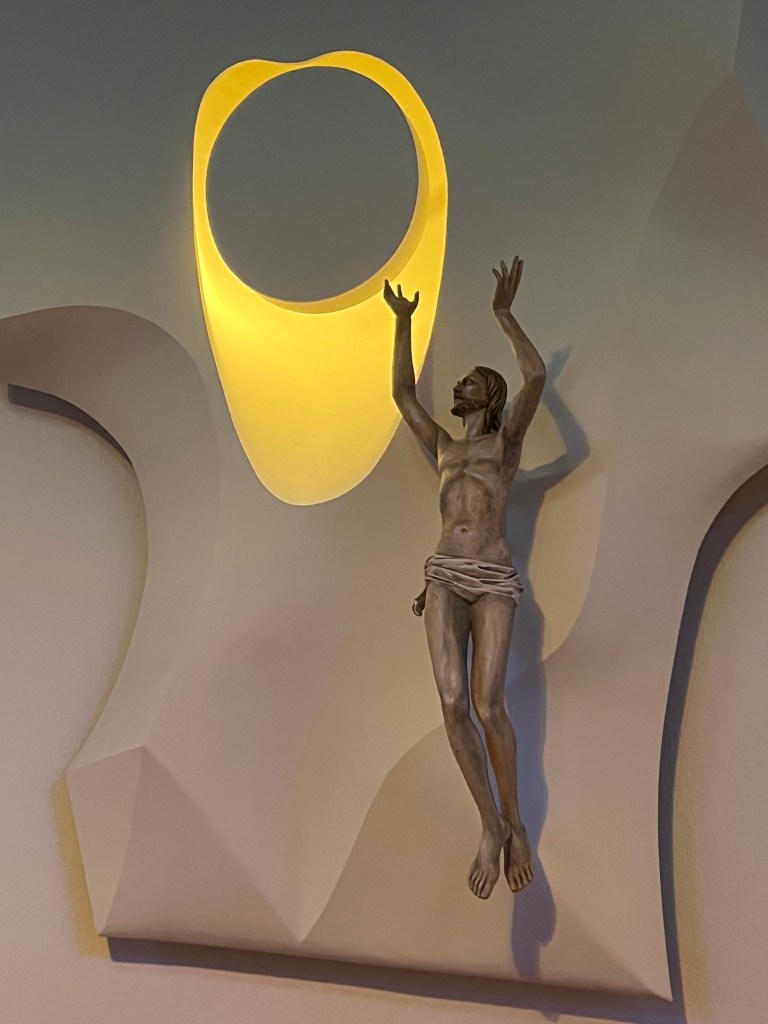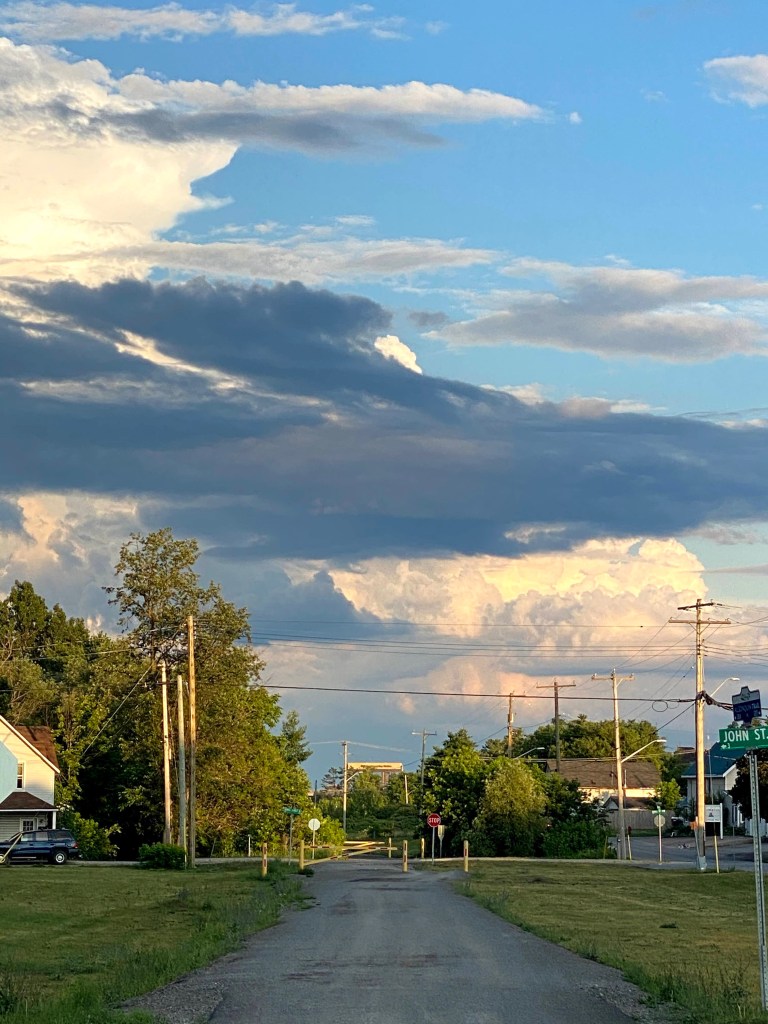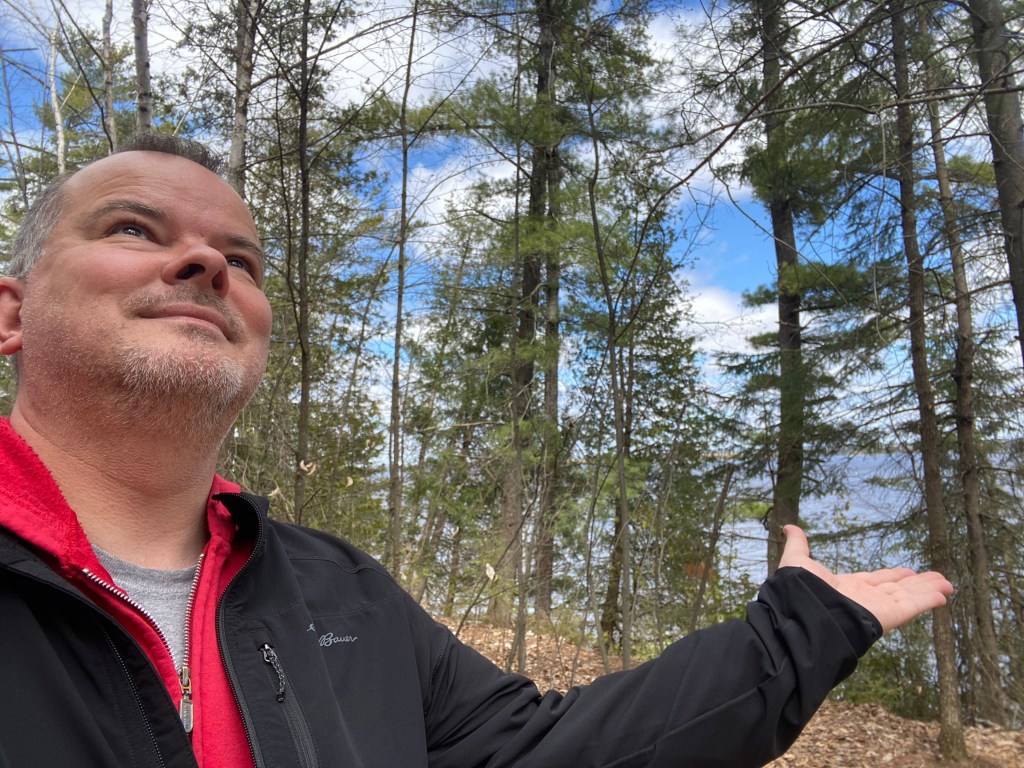
You can miss something Jesus says in the Gospel if you read it too quickly or skim over it. But because the instruction is repeated almost verbatim in the other reading assigned for the 7th Sunday of Easter I bring it to your attention.
How would you react to being told to wait? It’s hard enough to wait your turn in a crowded supermarket line, or getting snarled in stop-and-go traffic, or waiting for needed surgery or treatment. What would you do when someone asks you to wait? Wait for a sign before going through with a course of action your heart has settled on, or doing something you really want to do?
Jesus tells his disciples to wait in Jerusalem until they receive the promised Holy Spirit. They are to wait there before going out in God’s mission to the ends of the earth, to all nations.[1] Why are they waiting, to stay in place, before doing the Lord’s good work? What value is there in doing that?
On the other hand, if we use Jesus’ words to justify inaction, I think we are missing the point. Jesus isn’t saying: Don’t do anything until everything else is figured out and we have clear-cut answers. Jesus isn’t saying: Don’t do anything until all our problems are solved, until conditions are right or everything is perfect or until there is no doubt as to what to do.
To have peace in one’s heart and confidence to move forward in life means fear and doubt will still be part of our journey. To have peace and conviction about a course of action means there will always be reasons not to do something.
How does this Gospel help us today?
The disciples had experienced a significant transition in their lives. It had only been three years on the road with Jesus. They had experienced the wonder and the joy as well as the challenges, the disruptions, the dangers, and the threats of being with the Lord in person. All of this, after being—in some cases, suddenly—called away from their previous lives as fishers and tax collectors. That’s a lot of change in a short time.
And now, after the intense and tumultuous last days in Jerusalem witnessing Jesus’ arrest, torture and violent death on a cross, after witnessing his resurrection and encountering Jesus in the upper room, on the road to Emmaus and by the lakeshore, did they even have time to process all of this, to grieve?
Perhaps that’s one piece of wisdom in Jesus’ instruction: Wait in Jerusalem. Give yourself some time. Slow things down, take a breath, re-group. Pressing the reset button on their lives, the disciples spent valuable time in prayer, blessing God in the temple.
We may do well in our lives to pay attention to times of transition. Not ignore nor devalue those moments in-between. From a broader perspective, we are emerging from three years of pandemic disruptions. We cannot deny nor minimize its impact—positive and negative—on our lives. We need to give space for grief, for re-grouping, resetting.
It is time to again affirm what wisdom traditions through the ages have often claimed: What we most deeply seek and desire — healing, fulfillment, an answer to a question — must ultimately reveal itself to us. French philosopher Simone Weil once noted: “We do not obtain the most precious gifts by going in search of them but by waiting for them.”[2]
I want to conclude by giving us a practical exercise. Here is a spiritual discipline we can practice on a regular basis, even every week at worship:
Statio, from the contemplative Christian tradition, is the practice of stopping one thing before beginning another. Another way of expressing Statio is “holy pausing”. It is the acknowledgement that in the space of transition and threshold is a sacred dimension, a holy pause full of possibility. This place between is a place of stillness, where we let go of what came before and prepare ourselves to enter fully into what comes next.”[3]
When we pause between activities, we open ourselves to the possibility of discovering a new kind of presence of in-between times. Statio calls us to a sense of reverence for the “fertile spaces between our goals where we can pause and center ourselves and listen.”[4] We can open up a space within for God to work.
Because when we rush from one thing to another, we skim over the surface of life. When we rush from one thing to another, we lose the sacred attentiveness that brings forth revelations in the most ordinary of moments. We can become fully conscious of what we are to do rather than mindlessly completing another task. We can pay attention to what is actually happening rather than compulsively finding something else to talk about in order to erase the discomfort of a quiet moment between words.
In little yet significant ways, we can practice Statio in the liturgy. Our weekly worship is designed to honour times of transition. And we have to be intentional about our movement through the various stages of the worship service.
The prelude and postlude, for example, are transitional elements. The instrumental music first brings us into and then takes us out of the time for prayer. Here we can practice being still and silent within ourselves. We can collect our thoughts and affirm our relationship with ourselves and with God. We can just listen.
During the prelude and postlude, as we enter and leave this space of worship and prayer, we can give ourselves and each other the honour and respect of practising transitional time.
We do this, so that when the Spirit calls, and our hearts are nudged in faith, we will go. The seed of faith has been planted. And the seed of new life will now grow.
[1] Acts 1:4; Luke 24:49
[2] cited in Richard Rohr, “Waiting for Things to Unfold” Expanding our Vision (Daily Meditations, http://www.cac.org, 1 June 2022)
[3] “Holy Pausing” in Christine Valters Painter, The Soul’s Slow Ripening (Notre Dame, IN: Sorin Books, 2018), p.8-9.
[4] Ibid.







